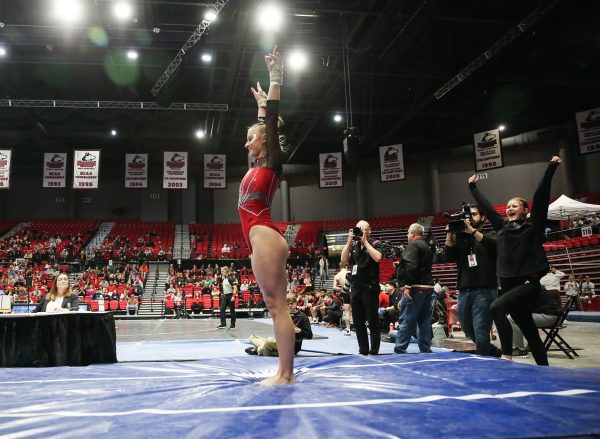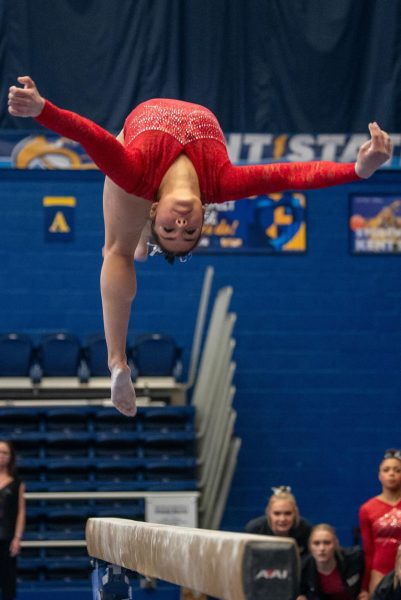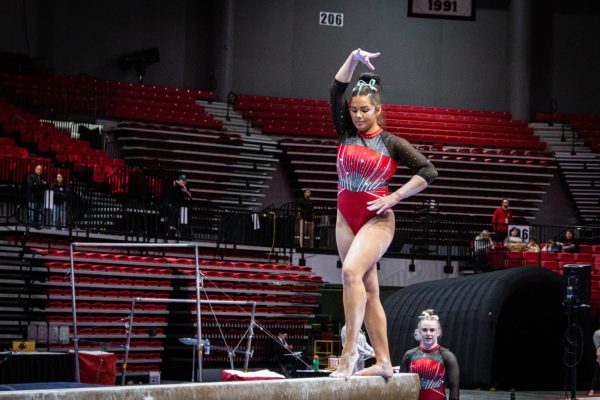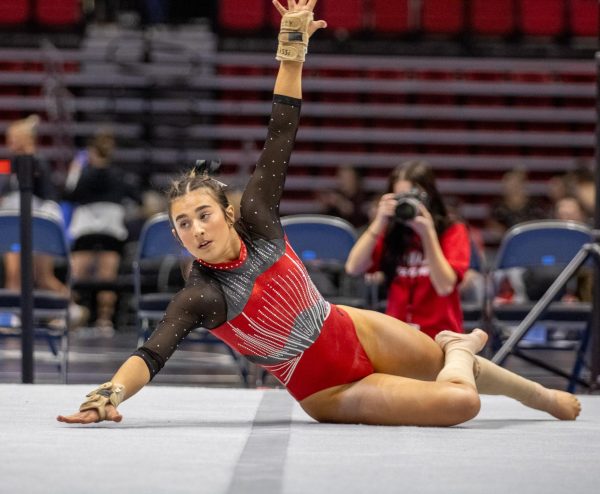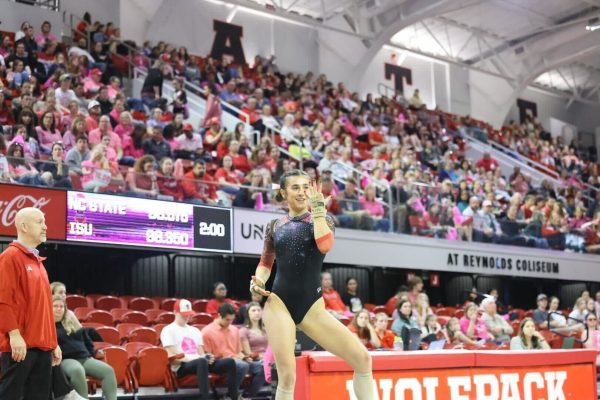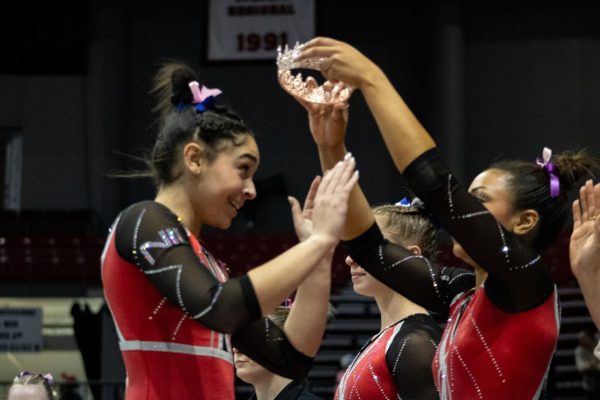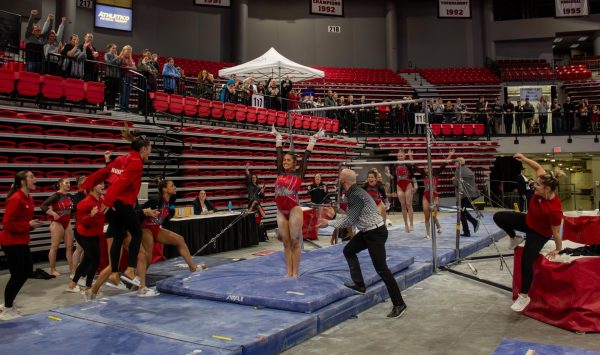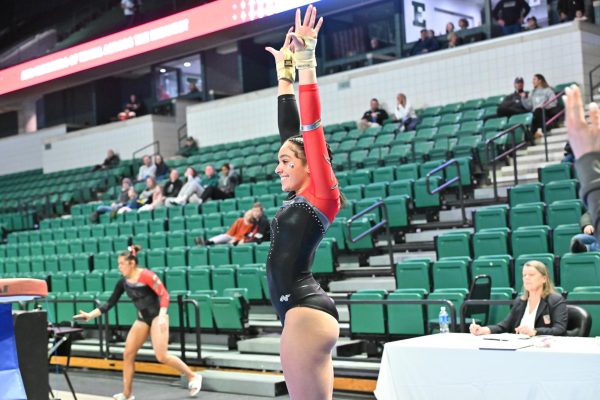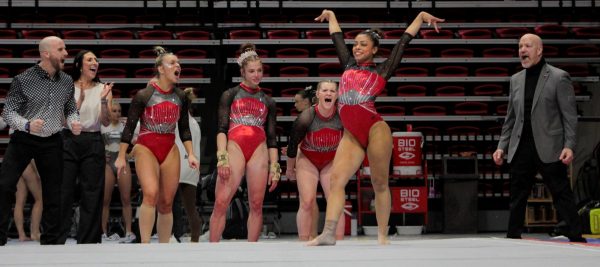Former NIU gymnast sets bar for sportsmanship
March 18, 2009
Kirk Mango remembers the feeling like it was yesterday.
He was standing in the middle of the Chick Evans Field House. The old basketball arena was crowded. Fans spilled out of the bleachers onto the floor. Those who showed up on time didn’t have a seat, as the field house was at standing room only.
The pep band was in full force playing music while entering the crowd, adding another element of life to the already alive arena.
But all the excitement wasn’t for the 1981-1982 NCAA qualifying men’s basketball team. Mango wasn’t even a student at NIU during those years. No, all the fans, grandeur and excitement was for a men’s gymnastics competition.
“That was the peak,” Mango said. “I was very proud to be a Huskie.”
Mango, who was inducted into the NIU Athletic Hall of Fame in 2000, competed in the still rings at NIU from 1975 to 1979. The highlight of his career came in 1979, when the senior became the Division I national champion in his event.
That year Mango was also named an All-American. It was the second time he earned the honor, as it was also bestowed upon him in 1978.
While earning the awards, honors and distinctions were high points in Mango’s career, it wasn’t what drove him. Instead, the athlete was motivated by an internal drive – the intrinsic value he found in sport.
After college, Mango became a high school physical education teacher. But, “The Lord of the Rings,” couldn’t be separated from sports for long, as he began coaching high school gymnastics.
Mango was also involved in athletics in another way after college – as a parent. Standing on the sidelines, the former NIU athlete watched one of his children play soccer, while the other focused on volleyball.
It was through these experiences, as an athlete, as a coach and as a parent of athletes, that Mango saw something disturbing. The former Huskie observed that less athletes were being motivated by the value of sport. Instead more and more high school athletes were being driven to compete because of extrinsic rewards.
“There’s value in the process. You [are an athlete] because, ‘I can, because I want to be good,'” Mango said. “You don’t do it, because ‘I want a scholarship.’ That’s not a reason to play.”
Wanting to help direct young athletes on the right path, Mango began to work on a book. Starting in 2003, the author sat down. Three years later, with 61,000 words down on paper, Mango produced his masterpiece, “Becoming a True Champion.”
The book is broken down into three sections. The first explains Mango’s principles of becoming a true champion. These range from the normal teachings of setting goals, to more unique ideas, such as where the fun in sports lie.
The second portion of the work breaks down a path that athletes can use to reach their goals. In essence, it creates a training process for them to follow.
In his last section, Mango explains his true story from high school, which “validates everything” Mango discusses in the first two parts of the book.
“It’s a very inspirational story,” the former Huskie said. “It’s real to high school athletes.”
While the book has been well received by those who have read it, it has yet to find a publisher. Mango has described the process of publishing his book as an uphill battle but one that he’s willing to fight – one that he feels needs to be fought.




